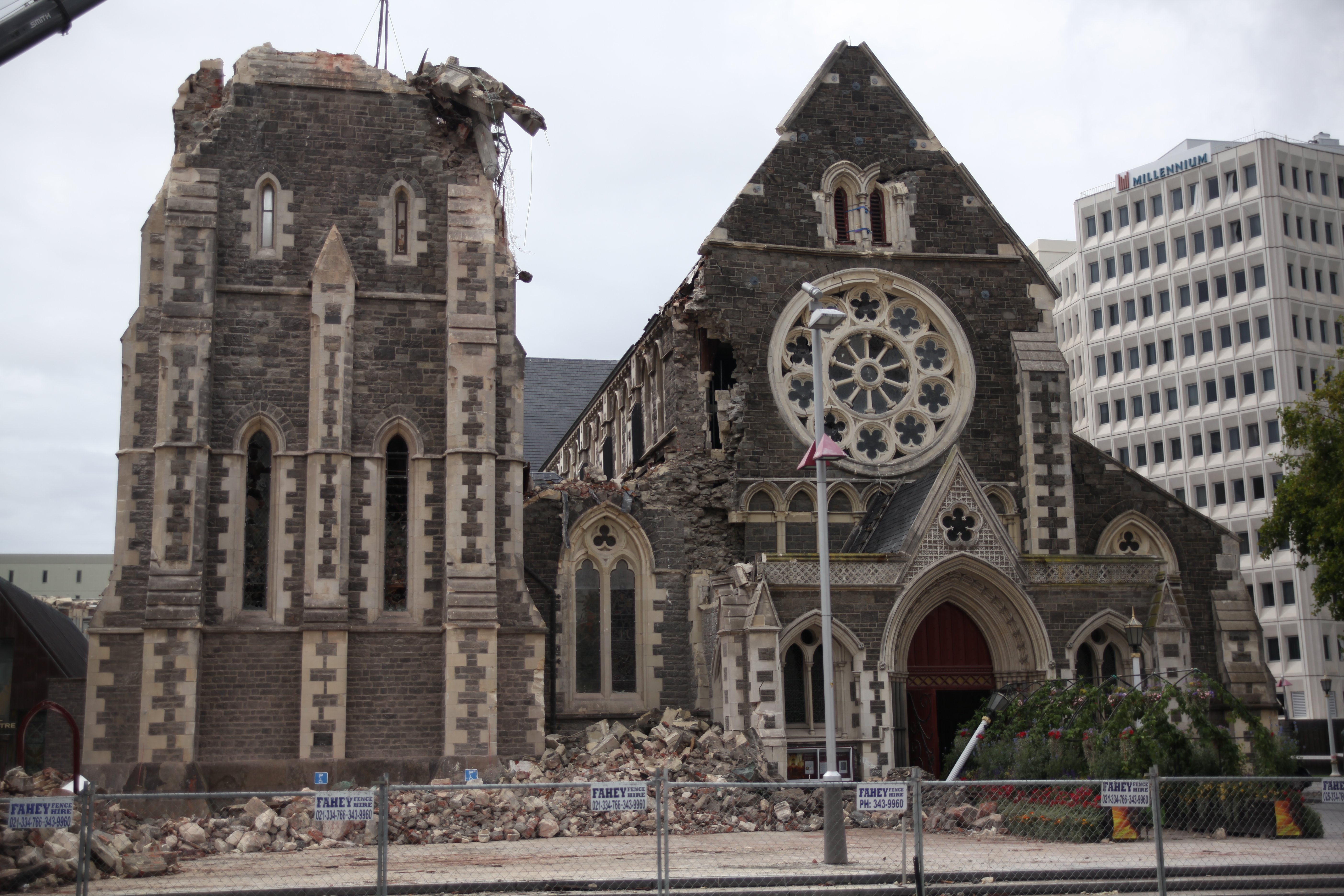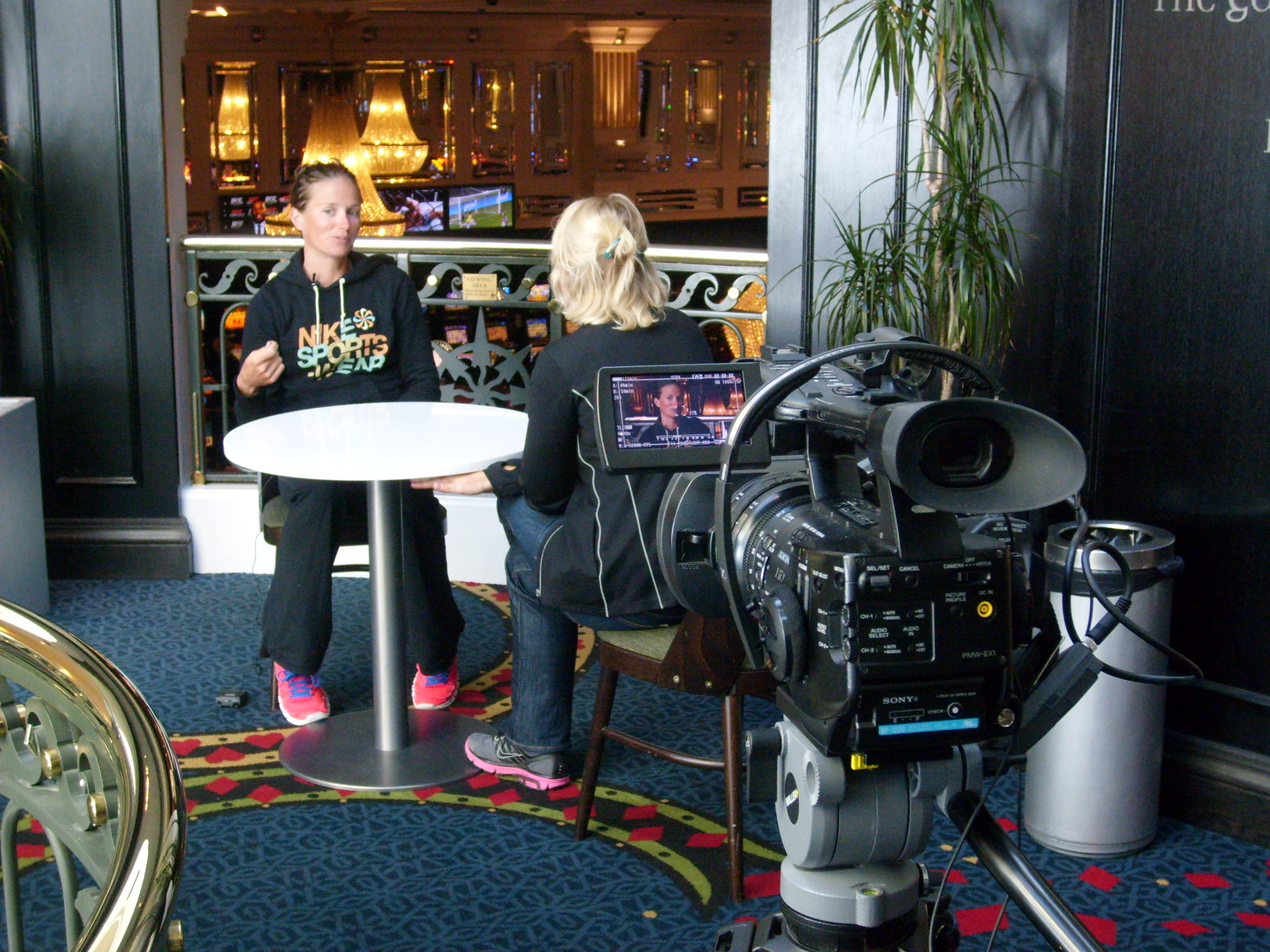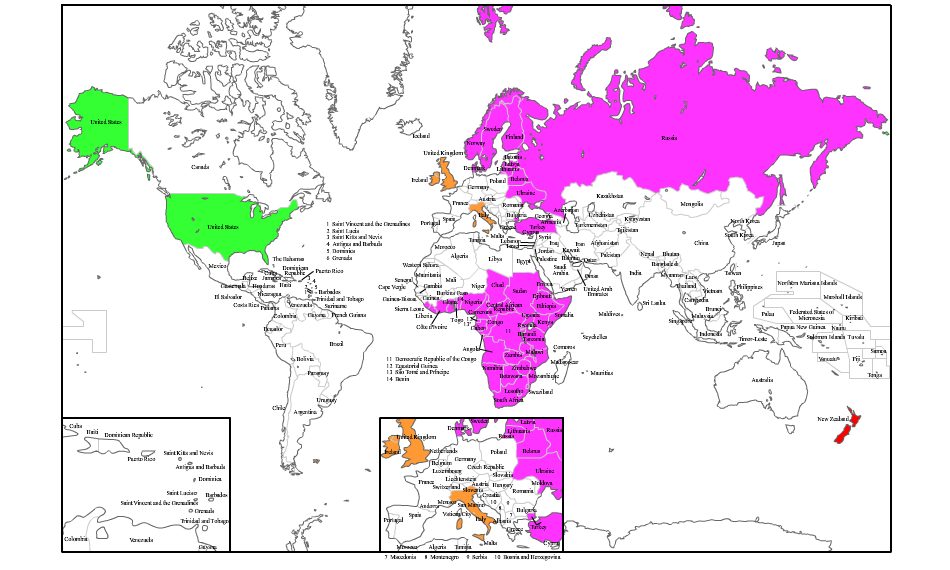This post was originally published in March, 2011
In September, I was in Christchurch covering the earthquake that struck near Darfield in the middle of the night. I never dreamed that within six months I would be back in the city covering another earthquake this one more devastating and more deadly by far.
Like many New Zealanders, I can tell you exactly where I was at 12.51 on Tuesday, February 22nd. I was covering the triennial New Zealand Christian Leaders Congress in Waikenae, on the Kapiti Coast, and having lunch. Shortly before one oclock, one of those present called for silence for a moment and announced that his wife had just phoned from Cathedral Square in Christchurch, where an earthquake had brought down the Cathedral. For a moment, you think it must be some sort of sick joke; and then you realise that no-one would pull a prank like that. Sure enough, within a couple of minutes the RBG newsroom had texted me with the news that a 6.3 magnitude earthquake had hit the city with fatal consequences.
With Christchurch airport closed, I met up with reporter Cathy Jenke and cameraman Scott Kelso in Wellington and we took the ferry across and then drove down to Christchurch. A constant stream of cars heading out of the city passed us going in the other direction. Supermarkets at the north end of the South Island were already running short of items when we called in, as the distribution centres in Christchurch had been taken out of action. In Kaikoura, a police officer told us that there had been angry scenes in the queues for petrol, which, like the food, was distributed out of Christchurch. It felt like we were heading towards a war zone.

As we entered the city from the north, at first things appeared normal but as we drew closer to the city centre it became obvious that the destruction Cathy and I had witnessed after that first quake was just a starter to the aftermath of the second. In Papanui we stopped to film the demolition of a shop which had been brought down by the quake, and spoke to one of the people who had worked there. She appeared more shellshocked than anything, not quite sure of what this all meant but knowing that her life had been changed forever. Nearby a liquor store smelled of every alcoholic beverage ever invented. Peering through the glass, the floor of the store was covered in broken bottles of beer and wine and liqueurs and spirits. The smell was overpowering.

The next morning we were due to broadcast live into the Rhema Breakfast show from within the cordoned off CBD area. Shortly before six oclock in the morning, we gingerly drove through the darkened streets with no power of course, there were no street lights, traffic lights or signage and were let through the cordon by a police officer backed up by soldiers with an armoured vehicle. Theres something hugely unsettling about seeing military vehicles on the streets of a city, and for me it brought back memories of working for the BBC in Belfast during the troubles.
In the midst of the dark city was one lit bubble of activity the Civil Defence headquarters and media

centre, based at the Art Gallery in Worcester Street. Its a modern, glass building with a large forecourt and ideal for all the TV broadcasters to set up their cameras, generators and lights. Since we were only broadcasting live on radio, all we need is a computer, an internet connection and the back of a truck, so we set ourselves up on the side of the road.
And so began our first full day in the city a hurly burly of interviews and media conferences and crosses with affiliated stations overseas. In the space of one day Cathy and I spoke to two BBC stations, UCB stations in Australia, Canada, the United States and the UK, and three or four other radio stations in Australia. Trying to catch key people to interview is like juggling jelly the situation changes so rapidly you think youve got someone set up and when you get there, theyve been snaffled by TV1 or Radio NZ and whisked off to their outside broadcast unit. Its a case of having to think on your feet and keep it all going. Once our own outside broadcast was finished, we decided to head out into the suburbs to see the effect of the quake on ordinary people.

This brought the sheer horror of the quake home far more than the wrecked buildings in the CBD. When you meet someone whose home is wrecked, whose job has gone, who has no water, no power, no phone, and little food in the house and then realise that they are just one of thousands in the same position you begin to see what it means on a day to day basis for them. What we had failed to realise was how hard it was to get around thats always assuming youve got enough petrol in your car in the first place. But the holes and cracks in the road, the liquefaction, the structural damage to bridges and other structures and the dangers of collapsing buildings mean that driving just half a dozen kilometres can take up to two hours.

We interviewed one young man who was busy digging liquefaction silt out of his house, who had been working as a builder in the central city when the quake struck. He had come down to get his lunch just a couple of minutes before the quake struck. Had he not done that, he would almost certainly be amongst the casualties. Instead, he was helping pull people from the wreckage himself and sadly, dead bodies. Understandably, he was shaken.
That was the story we heard again and again people who for some reason had escaped calamity while their neighbour was killed or injured. Its interesting watching the interviews we recorded (and indeed, those recorded by other TV stations) they often ended with the interviewee tailing off what they were saying, and gazing into the far distance.
One of the most remarkable and uplifting stories we covered was that of the Rangiora Express. Brendan Malone a regular contributor on New Zealands Rhema and on Shine decided that something needed to be done to help people get clean, safe drinking water after the quake. So he and a mate hitched a trailer to the back of his car and they set off to help. Others heard what they were doing and soon someone with a helicopter had come in to help. Then a second chopper. By the time we left Christchurch at the end of the first week, the army had brought in huge Chinook helicopters and a complete field kitchen was up and running. One mans drive and vision had motivated literally hundreds of people to help.

We were deeply impressed by the Anglican Bishop of Christchurch, Victoria Matthews. In her interview with Cathy, she said that just one person was worth a million times more than any of the hugely damaged churches in her diocese. She went on to say that it was the duty of Christians to be the hands, the feet, the voice, the heart of Christ to the city.
Another impressive leader is Mayor Bob Parker. He said to us This, too, shall pass. And one day we will return to something like normality. When you look at the wreckage of his city, thats a brave call.
We lived for most of the week on One Square Meal muesli bars there was no choice as at this stage there was pretty much no power, no water and no restaurants open in much of the city. Incredibly there was one restaurant open that we found just a couple of kilometres from our B&B so we did have one meal a day though I think we all felt a bit guilty when we knew that just down the road in the city there were thousands of people with no amenities at all.
And then there were the toilets. Or rather, there weren’t toilets. There were some portaloos at the Civil Defence HQ but once you were away from the

inner cordon area, you were on your own! I think most days when we got back to the B&B at the end of the day there was an undignified rush for the bathroom, after wed been crossing our legs for several hours. Cathy was alright, she had a room on her own but Scotty and I were sharing a room, with only one ensuite. Scott being bigger than me he usually won.
We flew home on the Sunday, and were replaced by Jeoff Barraclough and George Penk who took over. Being back in Auckland was weird, and I think we all found it hard to adjust. We all felt guilty about being able to return to normal life after a week in a wrecked city. Scott and I head back to Christchurch again this weekend with mixed feelings.
The Christchurch earthquake of February 22nd changed New Zealand and New Zealanders forever. Covering the story in the hours and days after the quake happened was shocking, uplifting, humbling, and challenging. But one thing really struck home the resilience and fortitude of Christchurch people was truly remarkable.
(The TV programme we made was broadcast on Shine TV on March 3rd)




